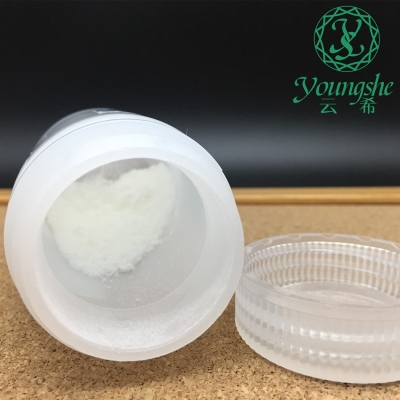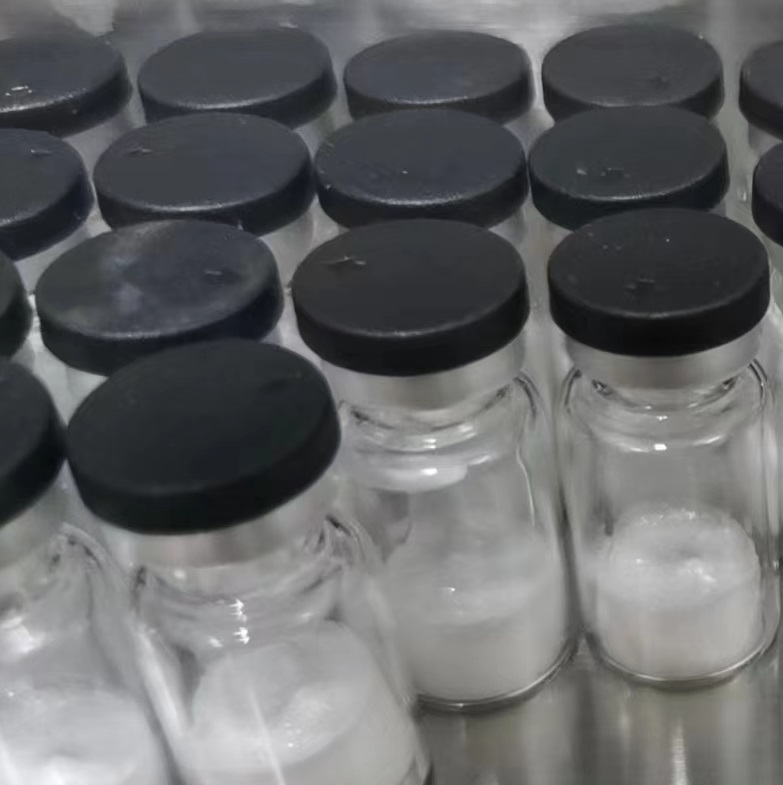-
Categories
-
Pharmaceutical Intermediates
-
Active Pharmaceutical Ingredients
-
Food Additives
- Industrial Coatings
- Agrochemicals
- Dyes and Pigments
- Surfactant
- Flavors and Fragrances
- Chemical Reagents
- Catalyst and Auxiliary
- Natural Products
- Inorganic Chemistry
-
Organic Chemistry
-
Biochemical Engineering
- Analytical Chemistry
- Cosmetic Ingredient
-
Pharmaceutical Intermediates
Promotion
ECHEMI Mall
Wholesale
Weekly Price
Exhibition
News
-
Trade Service
▎One of the important features of type 1 diabetes mellitus edited by WuXi AppTec's content team is the gradual decrease of functional beta cells and the need for insulin therapy.
Therefore, it is of great significance to prevent or delay the complete failure of β-cell function.
"The Lancet-Diabetes and Endocrinology" recently published a proof-of-concept study, which brings hope.
In newly-onset type 1 diabetes patients, the combination of anti-interleukin (IL)-21 antibody and liraglutide helps to preserve β-cell function.
Screenshot source: The Lancet Diabetes & Endocrinology This is a randomized, placebo-controlled, double-blind Phase 2 clinical trial conducted in 94 medical centers in 17 countries.
The study included newly diagnosed type 1 diabetes patients aged 18-45 who still have residual β-cell function.
Patients with type 1 diabetes who are unstable (defined as severe diabetic ketoacidosis within 2 weeks of admission) or who have active or latent chronic infections are excluded.
The test drug anti-IL-21 antibody is an investigational drug NNC0114-0006, which can improve immune regulation.
Liraglutide is a glucagon-like peptide 1 (GLP-1) analogue, which has been approved for the treatment of type 2 diabetes patients and weight management, helping to improve β-cell function.
From November 10, 2015 to February 27, 2019, after evaluation by the research team, 308 patients were finally randomized 1:1:1:1 and received anti-IL-21 combination therapy based on insulin therapy.
Laglutide, anti-IL-21 monotherapy, liraglutide monotherapy or placebo (77 people per group, based on the peak C-peptide concentration in the baseline mixed meal tolerance test [MMTT] [alternative measurement of insulin levels] ] Stratification).The primary endpoint of the study was the change in MMTT-stimulated C-peptide concentration from baseline at week 54 (end of treatment).
Compared with the placebo group (reduced by 39% from baseline), the reduction in MMTT-stimulated C-peptide concentration in the combination treatment group at week 54 was significantly smaller (reduced by 10% from baseline); Compared with the placebo group, the laglutide single-agent group showed a slight improvement trend, but there was no significant difference.
In other words, the insulin secretion function of the combination treatment group was better preserved.
▲ Normally functioning β cells (green) can produce insulin and promote blood sugar regulation (Credit: Masur / Wikimedia Commons).
Regarding the key secondary outcome, whether monotherapy or combination therapy, both show a trend of improvement in blood sugar control.
Although patients in the placebo group used more insulin, all patients in the active treatment group had a greater decline in glycated hemoglobin (HbA1c) at week 54 (-0.
5% vs -0.
1%), although the difference was not significant.
After stopping treatment, the research team also followed the subjects for an additional 26 weeks of non-treatment observation period.
It turned out that these effects were reduced after stopping the treatment.
In terms of safety, consistent with the known side effects of liraglutide, the most frequently reported adverse event was an abnormality of the digestive tract.
There was no significant difference in the overall incidence of hypoglycemia between the 3 treatment groups and the placebo group, but during the treatment period, the incidence of hypoglycemia in the liraglutide group was lower than that in the placebo group.
No event of diabetic ketoacidosis was observed.
One subject died while taking liraglutide (but considered unlikely to be related to the trial treatment).
The patient was associated with three adverse events (hypoglycemic coma, pneumonia, and cerebral edema).
Image source: 123RF Based on these findings, the research team believes that the combination of anti-IL-21 monoclonal antibody and liraglutide can preserve β-cell function in newly diagnosed type 1 diabetes patients.
Compared with other disease-modifying interventions for type 1 diabetes, this combination therapy has similar efficacy but appears to be safer.
Next, the efficacy and safety of this combination therapy will be further evaluated in a phase 3 trial.
It is hoped that this treatment plan will go further and be able to alleviate the burden of disease for patients with type 1 diabetes.
Related reading NEJM: Preserving insulin secretion, immunotherapy moves forward to "cure" type 1 diabetes! Stop insulin and reverse type 1 diabetes! Rare cases of NEJM suggest that the therapeutic potential of JAK inhibitors is expected to regenerate β cells and restore insulin secretion? A rewarded survey of readers’ interest in discovering new perspectives on positive signs of medicine in long-term patients with type 1 diabetes.
At the beginning of the new year, in order to better understand the medical and health academic information you care about, we invite you to take 1 minute to fill out the questionnaire.
Participate in the survey for a chance to win prizes.
The questionnaire is anonymous, and the content of the questionnaire does not involve sensitive personal information.
The results of the survey will not be disclosed to the outside world.
They are only used for internal evaluation and serve as an important reference for the content push of this year.
Therefore, it is of great significance to prevent or delay the complete failure of β-cell function.
"The Lancet-Diabetes and Endocrinology" recently published a proof-of-concept study, which brings hope.
In newly-onset type 1 diabetes patients, the combination of anti-interleukin (IL)-21 antibody and liraglutide helps to preserve β-cell function.
Screenshot source: The Lancet Diabetes & Endocrinology This is a randomized, placebo-controlled, double-blind Phase 2 clinical trial conducted in 94 medical centers in 17 countries.
The study included newly diagnosed type 1 diabetes patients aged 18-45 who still have residual β-cell function.
Patients with type 1 diabetes who are unstable (defined as severe diabetic ketoacidosis within 2 weeks of admission) or who have active or latent chronic infections are excluded.
The test drug anti-IL-21 antibody is an investigational drug NNC0114-0006, which can improve immune regulation.
Liraglutide is a glucagon-like peptide 1 (GLP-1) analogue, which has been approved for the treatment of type 2 diabetes patients and weight management, helping to improve β-cell function.
From November 10, 2015 to February 27, 2019, after evaluation by the research team, 308 patients were finally randomized 1:1:1:1 and received anti-IL-21 combination therapy based on insulin therapy.
Laglutide, anti-IL-21 monotherapy, liraglutide monotherapy or placebo (77 people per group, based on the peak C-peptide concentration in the baseline mixed meal tolerance test [MMTT] [alternative measurement of insulin levels] ] Stratification).The primary endpoint of the study was the change in MMTT-stimulated C-peptide concentration from baseline at week 54 (end of treatment).
Compared with the placebo group (reduced by 39% from baseline), the reduction in MMTT-stimulated C-peptide concentration in the combination treatment group at week 54 was significantly smaller (reduced by 10% from baseline); Compared with the placebo group, the laglutide single-agent group showed a slight improvement trend, but there was no significant difference.
In other words, the insulin secretion function of the combination treatment group was better preserved.
▲ Normally functioning β cells (green) can produce insulin and promote blood sugar regulation (Credit: Masur / Wikimedia Commons).
Regarding the key secondary outcome, whether monotherapy or combination therapy, both show a trend of improvement in blood sugar control.
Although patients in the placebo group used more insulin, all patients in the active treatment group had a greater decline in glycated hemoglobin (HbA1c) at week 54 (-0.
5% vs -0.
1%), although the difference was not significant.
After stopping treatment, the research team also followed the subjects for an additional 26 weeks of non-treatment observation period.
It turned out that these effects were reduced after stopping the treatment.
In terms of safety, consistent with the known side effects of liraglutide, the most frequently reported adverse event was an abnormality of the digestive tract.
There was no significant difference in the overall incidence of hypoglycemia between the 3 treatment groups and the placebo group, but during the treatment period, the incidence of hypoglycemia in the liraglutide group was lower than that in the placebo group.
No event of diabetic ketoacidosis was observed.
One subject died while taking liraglutide (but considered unlikely to be related to the trial treatment).
The patient was associated with three adverse events (hypoglycemic coma, pneumonia, and cerebral edema).
Image source: 123RF Based on these findings, the research team believes that the combination of anti-IL-21 monoclonal antibody and liraglutide can preserve β-cell function in newly diagnosed type 1 diabetes patients.
Compared with other disease-modifying interventions for type 1 diabetes, this combination therapy has similar efficacy but appears to be safer.
Next, the efficacy and safety of this combination therapy will be further evaluated in a phase 3 trial.
It is hoped that this treatment plan will go further and be able to alleviate the burden of disease for patients with type 1 diabetes.
Related reading NEJM: Preserving insulin secretion, immunotherapy moves forward to "cure" type 1 diabetes! Stop insulin and reverse type 1 diabetes! Rare cases of NEJM suggest that the therapeutic potential of JAK inhibitors is expected to regenerate β cells and restore insulin secretion? A rewarded survey of readers’ interest in discovering new perspectives on positive signs of medicine in long-term patients with type 1 diabetes.
At the beginning of the new year, in order to better understand the medical and health academic information you care about, we invite you to take 1 minute to fill out the questionnaire.
Participate in the survey for a chance to win prizes.
The questionnaire is anonymous, and the content of the questionnaire does not involve sensitive personal information.
The results of the survey will not be disclosed to the outside world.
They are only used for internal evaluation and serve as an important reference for the content push of this year.







